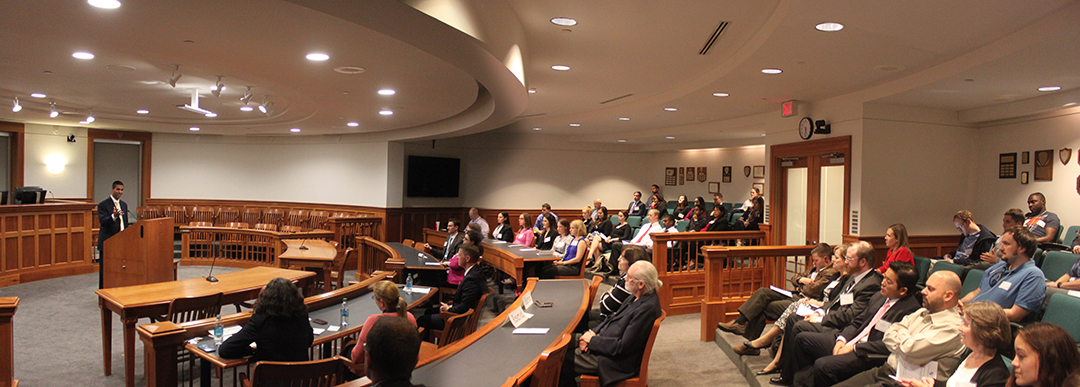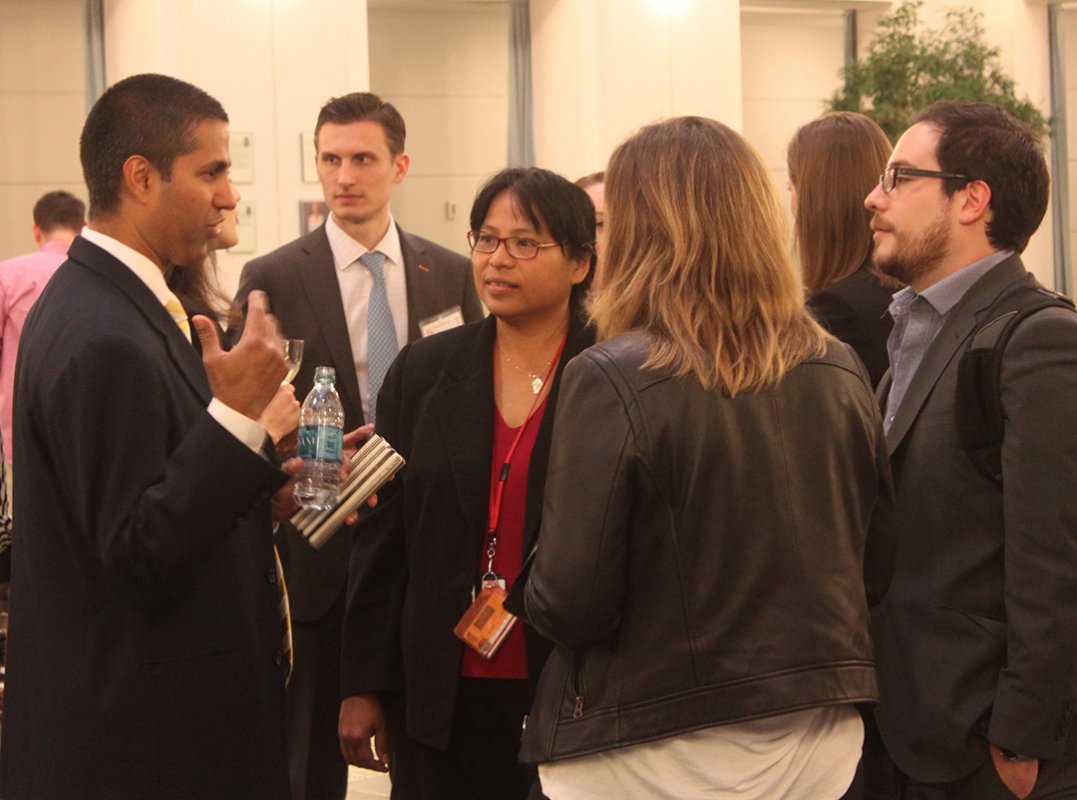
 In an ever-increasingly connected world, the role of broadband communication has grown inextricably related to nearly every aspect of our lives. The Federal Communications Commission (FCC) works to regulate these communications to ensure the protection of consumers while promoting competition and innovation by producers of new technology. Commissioner Ajit Pai spoke with students, faculty, and Communications Law Institute (CLI) alumni of CUA on Thursday, October 22 about the role of the FCC in what is certainly the most rapidly changing era of communication technology, and how the Commission is working to adapt to these advancements.
In an ever-increasingly connected world, the role of broadband communication has grown inextricably related to nearly every aspect of our lives. The Federal Communications Commission (FCC) works to regulate these communications to ensure the protection of consumers while promoting competition and innovation by producers of new technology. Commissioner Ajit Pai spoke with students, faculty, and Communications Law Institute (CLI) alumni of CUA on Thursday, October 22 about the role of the FCC in what is certainly the most rapidly changing era of communication technology, and how the Commission is working to adapt to these advancements.
The presentation, titled "Entrepreneurship and Innovation in America's Internet Economy," took place in Slowinski Courtroom and was recorded live. It was the kick-off event for the Law and Technology Institute, the newest academic institute at CUA, directed by Associate Professors Megan La Belle and Elizabeth Winston. The Law and Technology Institute (LTI) allows students to pursue an area of interest including communications law, and will continue to build off the work and achievements that the CLI has accomplished over the past three decades.
After a welcome from Professor La Belle, 3L Christopher Mills, president of Communications Law Student Association and member of LTI, introduced Commissioner Pai. Mills was a law clerk last year in Commissioner Pai's office.
Commissioner Pai, who was nominated by President Obama and confirmed unanimously by the Senate in 2012, began his presentation with anecdotal stories of individuals he has met who are innovating all over the country but are "not following the typical path of entrepreneurs." The Commissioner called this developing trend "the democratization of entrepreneurship." An industry that was previously limited to industry hubs like Silicon Valley and Boston is evolving so that anyone in the world can scale an idea and make it world-class. "Broadband can give people hope in these small towns that they can maintain the lifestyle they want by choosing to live in these places while getting an online presence that lets them reach out," the Commissioner said.
In the midst of this IP revolution, the Commissioner later explained, the government needs to be sensitive to the changes in the field and how antiquated regulations may need updating in light of new players in the industry. Legacy regulations can impede innovation, and Commissioner Pai expressed his hope that future reform will focus on what improves consumer welfare, a regulatory approach which will benefit consumer and producers alike in the long run.
After his presentation, the Commissioner opened the floor to questions from attendees. "Broadband is characterized as essential to our everyday lives," 3L Russell Hsiao pointed out in his comment to the Commissioner, "Is that a correct characterization?" In response, the Commissioner said "broadband is increasingly critical" to a number of areas of daily life, citing to examples of residents in rural Alaskan towns that were not able to seek medical attention from doctors before having access to broadband. Commissioner Pai also cited to use by low-income school districts of broadband technology to access greater resources, explaining that schools that have provided students with broadband access have seen student performance improve drastically.
To conclude the question and answer session, Professor Sandy Ogilvy asked the question legal education institutions strive to answer: What should law schools be doing to ensure their students are prepared to practice in light of these universal changes in communication?
Commissioner Pai responded by first noting his positive experiences working with many CUA students and alumni throughout his career. He then noted the importance of developing strong research and writing skills while in law school. Most critical, the Commissioner said, is the importance for students entering the communications field to have an ability to understand how government or private entities would approach and solve a problem. This approach to thinking makes a law student more valuable and practice-ready than one who is simply familiar with the legal doctrine.
